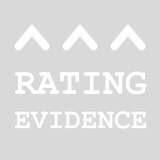AvP Deutschland GmbH is an example of a rating dilemma: The company is too small to belong to the group of companies closely monitored by recognized rating agencies automatically, and too large to be ignored as a risk.
In general, credit reference agencies only use the financial statements and other official information available from the registry courts. So also in the case of this company. Therefore, the last data of the annual financial statements available from the German Federal Gazette are more than 18 months old. As a financial service provider, the insolvency application can only be submitted with the approval of the Federal Financial Supervisory Authority (Bundesanstalt für Finanzdienstleistungsaufsicht, BaFin).
Until recently, the company had comparatively good ratings therefore: Credit Index 2.5, Risk Score 70 and an International Score B, indicating a Probability of Default of only 0.34 %. The default risk was reckoned to be medium. The business connection was rated “acceptable”. By end of 2018, due to the existing profit and loss transfer agreement, equity remained unchanged at EUR 3,191 thousand. The capital structure is balanced; the equity ratio was 22.9% with constant equity (previous year 19.9%).
On September 14, 2020, BaFin appointed Ralf R. Bauer as a special commissioner at AvP Deutschland GmbH. BaFin has given him sole management responsibility. On September 15, 2020, the special commissioner filed for bankruptcy at the insolvency court of the Düsseldorf district court for AvP Deutschland GmbH. The annual average number of employees was 60 (based on the fiscal year from January 1 to December 31, 2018).
For public pharmacies, hospital pharmacies, medical supply stores and other service providers, AvP Deutschland GmbH takes on the billing of prescriptions to the statutory cost carriers, such as AOK, BEK, DAK, TK, etc. in the context of German statutory health insurance.
The situation regarding new functions of the “Elektronische Gesundheitskarte” (electronic health card) was still unaffected by changes in the year 2018. The company’s dependence on the development of legal framework conditions is considerable. The e-prescription must not become a plaything of lure offers, advertising terror and discount battles on the patient’s cell phone. Something like this is conceivable with “apps” that want to access them before redeeming the e-prescription and promise the patient supposed advantages. These can be online platforms or mail order data dealers, for example. The Patient Data Protection Act (PDSG) passed in summer 2020 is intended to exclude influencers and advertising in this context.
AvP Deutschland GmbH expected competitive market conditions in Germany to continue. The specific business risks were primarily in competition with other billing service providers. In addition, products such as the aid contract database, ScanAdhoc, in particular with Pharma-Control, but also other services such as a. Clearing and the Dialog Center worked on maintaining a technological and service-oriented role.
Fundamental risks lay in the default rate of the company’s customers. Should the company’s customers, due to a changed interest situation, decide not to carry out any more business in the area of factoring, this leads to falling income and thus possibly to a worsening of the company’s financial situation.
For the company, due to the business model it operates, there were market price risks in the area of loan interest from the refinancing banks. Given the interest rate level in 2018 and the market forecast, the company correctly expected no significant increase in market interest rates in the medium term. According to 2018 financial statements, liquidity risks were also not discernible to the management due to the regular monitoring of all incoming and outgoing payments as well as income and expenses.
By establishing a syndicated loan, the company had strengthened its cooperation with a banking consortium with a contract term of 3 + 1 years. The financial risks lay in the company’s high transaction volume and the variable interest rates on the billing accounts. Changes in interest rates had a direct impact on the amount of interest paid. This risk was countered by using interest rate hedges (SWAPs). The company saw essentially no default risks because the billing fees to be paid by the pharmacies can be taken directly from the incoming payments from the cost units on the billing account.
By May 31, 2019, in accordance with Section 322, Paragraph 3, Clause 1 of the German Commercial Code, the auditing company stated “that our audit did not lead to any objections to the correctness of the annual financial statements and the management report.”
The rating of group companies is particularly difficult. The interdependencies between companies can be complex. The accounting rules are not suitable for providing the information required for rating complicated corporate structures with sufficient up-to-date information.



















